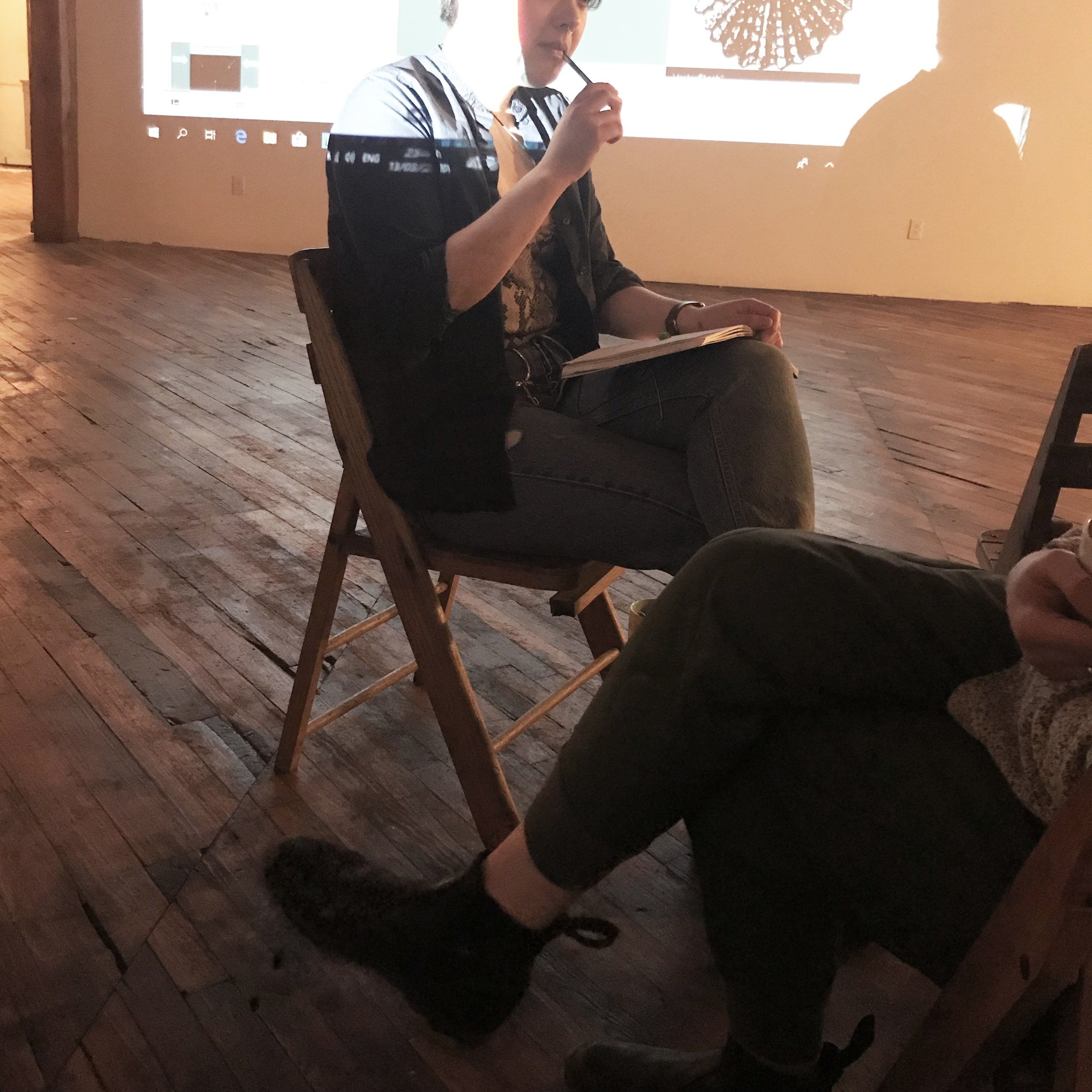Snowed Under: A crash course in dealing with epistemological dread
March 11th - 13th, 2019
Averill Park, NY, United States
From Mar 11th to 13th, Yurika Higashikawa presented her artist residence show, Snowed Under: A crash course in dealing with epistemological dread. In the three-day session, YU shared a wide range of works reflecting diverse aspect of own. A reading of A love letter to creative workers brought her intimate affection, interest and care into questions of what is being artists and what their obligations are. Storytime, a collaborative reading of two short stories dragged the audience to be present in the stories. In the last piece, YU performed a lecture calling for a more radical approach to self/community education in light of environmental destruction.
Yurika Higashikawa is a research driven, performance-based art-worker currently living in Dublin. They graduated from NCAD with a Joint BA degree in Sculpture and Visual Culture in 2017. Since exiting the academic institution as a student, YU has continued to evolve their practice through a series of lectures and guided tours in and Dublin City Centre.
YU’s practice evolved out of a provisional act of resistance against the imposed heterogeneous hierarchies implicit in a university and aimed to highlight how certain classist, gendered and racist structures can affect and direct creative workers within the wider field of the Irish State. Since graduating from university, the antagonism of the knowledge economy remains a core consideration within their practice however YU has become predominantly concerned about the contingent realms of historical turmoil in relation to contemporary site of social unrest under neliberalism. They interrogate the ever-evolving, ever-shifting physical and metaphysical terrain of Ireland through the use of socially engaged actions and performances as well as guerrilla style object interjections. By using ‘The testimony’ or ‘The Complaint’ as their modus operandi, YU unravels ideas of agency, precarity, hope, adaptability, institutional pain and opportunity.
Alongside these key considerations, YU has also become increasingly concerned about the relationship between ethics and art. Having developed a profound distrust of the state’s co-option and utilisation of art in regeneration projects, YU poses their performances alongside capitalist entities as a tactic to erode or undermine their ideological actions. Placing their final iterations of their work in the public sphere, methods of co-option, over-identification and consent have become central to how they execute their work.
Current research has lead YU to consider what roles can be assigned to art in relation to the housing crisis and what links can be made to grassroots organising. Should it be a soothing agent, to propose band-aid solutions? Should it be the voice of dissent, using its autonomy to propagate or disperse hidden narratives? Can it effectively support communities in times of crisis and if so, what are the ethical considerations that should be taken into account? YU’s work is an interrogation of arts radical possibilities, paradoxical conventions and responsibilities in a post-relational art and institutional art context.














